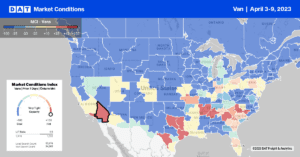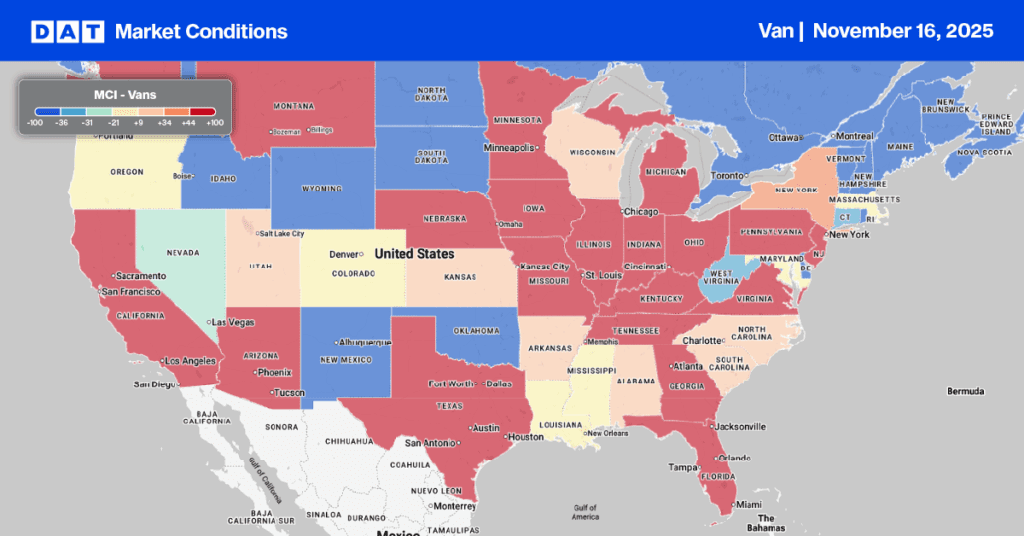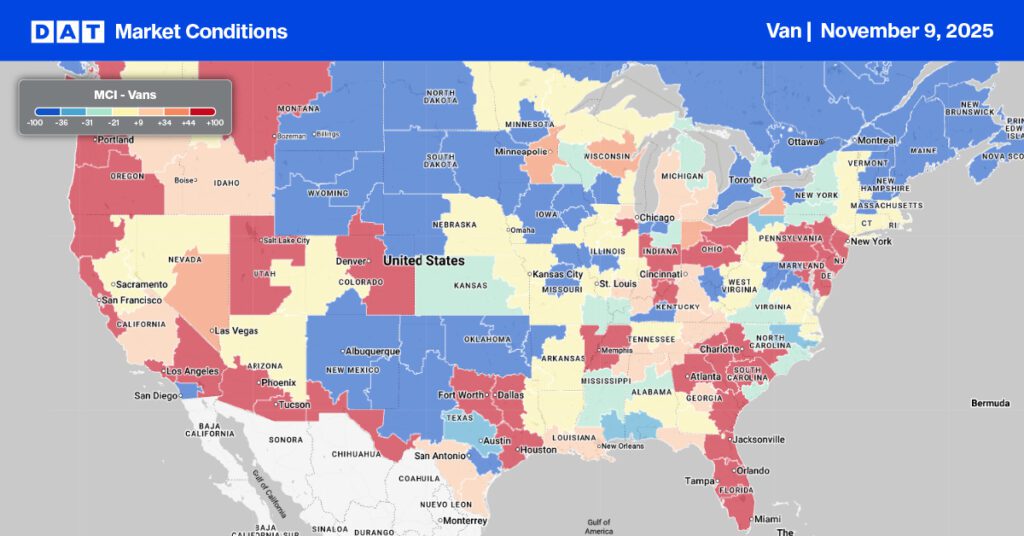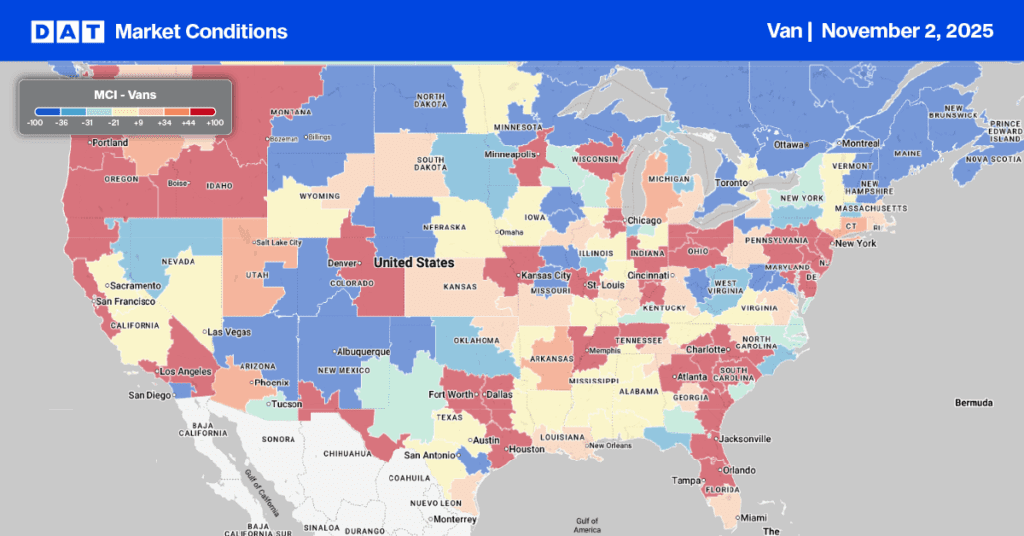The March Logistics Managers’ Index (LMI) came in at 51.1, down -3.6 from February and the lowest reading for the overall index in the 6.5-year history of the LMI. The March result is driven by an all-time low in Transportation Prices, down (-5.0) to 31.1. The LMI score combines eight unique components of the logistics industry, including inventory levels and costs, warehousing capacity, utilization, and prices, and transportation capacity, utilization, and prices. The LMI is calculated using a diffusion index, in which any reading above 50.0 indicates that logistics is expanding; a reading below 50.0 indicates a shrinking logistics industry. The latest results of the LMI summarize the responses of supply chain professionals collected in March 2023.
Zac Rogers, Assistant Professor at Colorado State University, says, “ The overall economy continues to be somewhat mixed. Things are slower than they have been, but it does not seem we are in an official recession. These mixed economic messages are epitomized by the LMI’s overall index score of 51.1. This is the slowest rate of growth we have ever tracked in the 6.5 years of the index, but it is still growing. Things have been slowing down, but the macroeconomy has not yet come to a halt.
Market Watch
All rates cited below exclude fuel surcharges unless otherwise noted.
Even though California outbound state average rates are just $0.05/mile higher than in 2019, last week’s $0.03/mile increase to $1.82/mile was the first in five weeks. Even though Los Angeles volumes were down 5% w/w, capacity tightened following last week’s $0.02/mile increase in linehaul rates to $1.55/mile.
Loads from Los Angeles to Seattle at $2.26/mile were $0.12/mile higher than in March, while loads to Stockton were primarily flat at $2.50/mile, the lowest in the previous 12 months. Loads to Phoenix, another warehouse market that has received higher import volumes over the last two years, were also at their lowest in 12 months at $2.22/mile. That’s $1.36/mile lower than in 2022. In nearby Ontario, the largest dry van market in the state, the same trend was observed – volumes down but rates up $0.02/mile to $1.66/mile.
On the East Coast in Elizabeth, NJ, outbound capacity tightened slightly following a $0.01/mile increase in outbound rates to $1.44/mile, reversing a three-week slide. Loads 900 miles south to Atlanta, at $1.20/mile, were the lowest in 12 months, with a similar trend for loads west to Columbus, OH, at $1.32/mile. In other major markets, capacity loosened in Atlanta, where linehaul rates dropped $0.02/mile to $1.64/mile on a 13% lower volume. The same trend was reported in Chicago, where rates fell for the fourth week to $2.00/mile following last week’s $0.03/mile decrease.

Load-to-Truck Ratio (LTR)
Volumes dropped by 19% last week, which is not unusual following the typical end-of-month and quarter shipping surge observed during the prior week. More concerning is how close the dry van spot market is to this time in 2020, trending 2% below the corresponding week. Capacity loosened slightly following a 2% w/w increase in equipment posts resulting in the dry van load-to-truck ratio (LTR) decreasing by 20% w/w from 2.01 to 1.60, slightly above 2019.
Linehaul Spot Rates
Declining spot market volumes and increasing capacity continued the slide in linehaul rates following last week’s $0.02/mile decrease. At $1.66/mile, spot rates continue to track closest with 2019 at around $0.11/mile higher. Based on the volume of loads moved the average rate for the top 50 dry van lanes was $0.20/mile higher at $1.86/mile last week.


